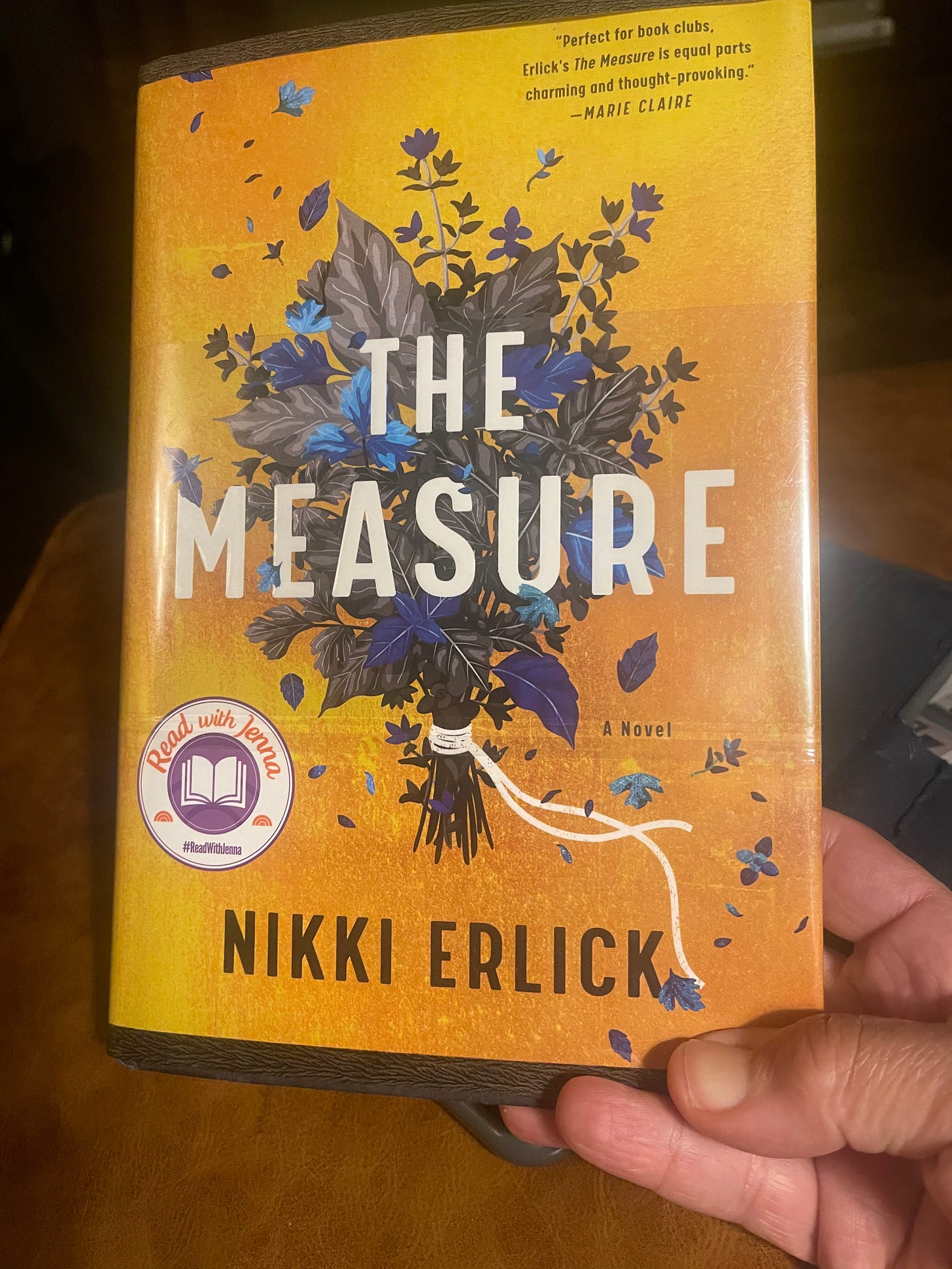Books: “The Measure” by Nikki Erlick
Almost three years ago, a mysterious virus appeared seemingly out of nowhere. Nobody knew at the time that it would change the world forever.
Since then, a number of novels, plays and even Netflix series have dealt with the dislocation COVID has caused. A recent novel, “The Measure” by Nikki Erlick, gets at dislocation in a similarly scary way: with the appearance not of a virus but of small wooden boxes that begin appearing on people’s doorsteps—not just in America, but around the world.
Inside each box is a string. Scientists soon determine that if you open the box and find a short string, you’re going to die quickly. If your string is long, you’re headed for a longer life.
Who sends these boxes? A Supreme Being? Aliens from the a faraway galaxy? No one knows for sure, but what is for certain is that everyone over the age of 22 receives a box.
Not everybody wants to open their box, however. But those who do and find a short string are confronted with the same stigma that people who tested positive for Covid in 2020 must have faced. Later, researchers also discover that the length of your string could predict your actual age at death.
The world is thrown into a panic. All people talk about and all journalists write about are short strings vs. long strings. “Short-stringers” are suddenly considered second-class citizens and risks for employment. Protests spring up against the new restrictions. There’s even a “Bachelor- Long Strings” as well as a separate “Bachelor -Short Strings” on reality TV.
The story of this “string plague” is told from the POV of six different people and how it affects each of them: Ben, an architect; Maura and Nina, a gay couple; Jack and his army buddy Javi; and Jack’s uncle Anthony, a candidate for President, who aims to make political points by banning all short-stringers from the government.
Along the way, serious philosophical questions are raised: If you know you’re going to die, is it worth investing in a relationship and planning a family? Should a short-stringer soldier volunteer for a war so a long-stringer can live?
Ultimately, though, your appreciation of “The Measure” will depend on your willingness to accept the absurdity of strings determining your lifespan. But then if someone told me 3 years ago we’d be wearing masks and foregoing dinner parties because of a virus, I’d have said they were nuts, too. So maybe Erlick’s on to something. Just not your must-read list.


Just by reading what you were telling us, I was having heart palpitations. It will be a good read further down the road! 👍 Carole